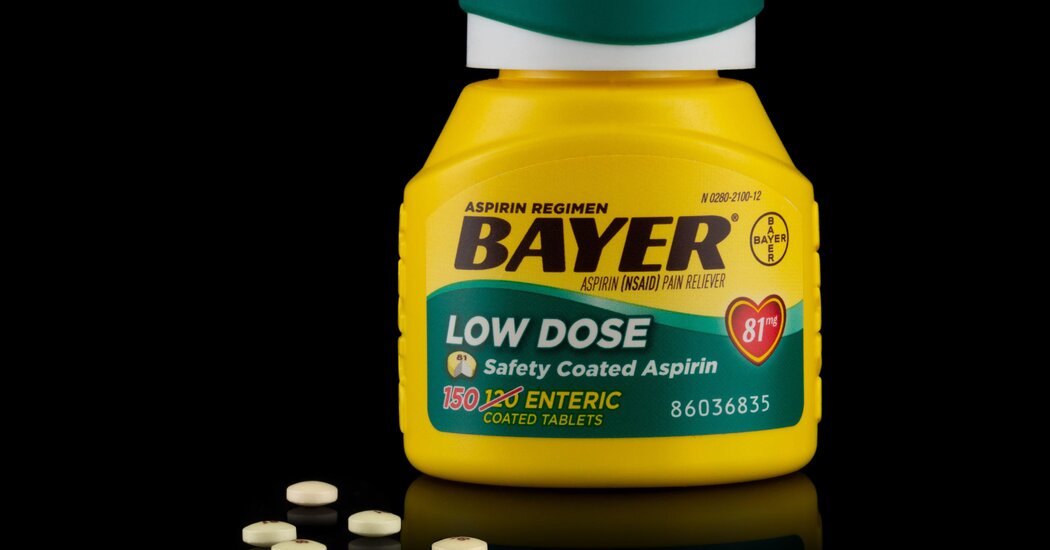
The task force includes 16 experts in disease prevention and evidence-based medicine who periodically evaluate screening tests and preventive treatments. Members are appointed by the director of the federal Agency for Healthcare Research and Quality, but the group is independent and its recommendations often help shape U.S. medical practice.
The guidelines, which are not yet final, have the potential to affect tens of millions of adults who are at high risk for cardiovascular disease, which continues to be the leading cause of death in the United States, even in the age of Covid. The panel will accept public comments on its recommendations until Nov. 8, and its draft guidance is usually adopted sometime after the comment period ends.
Two years ago, the American College of Cardiology and American Heart Association had jointly narrowed their recommendations to say aspirin should be prescribed very selectively for people ages 40 to 70 who had never had a heart attack or stroke. On aspirin, the organizations say “generally no, occasionally yes,” for primary prevention. That advice differs from the task force’s new draft guidance for a cutoff at age 60.
“When we looked at the literature, most of it suggested the net balance is not favorable for most people — there was more bleeding than heart attacks prevented,” said Dr. Amit Khera, one of the authors of the medical groups’ guidelines. “And this isn’t nose bleeds, this can be bleeding in the brain.”
And as long ago as 2014, a Food and Drug Administration review concluded that aspirin should not be used for primary prevention, such as to ward off a first heart attack or stroke, and noted the risks.
The task force, which previously made a universal recommendation for high-risk adults in their 50s to take baby aspirin if their odds of a side effect were low, now proposes that high-risk adults in their 40s and 50s talk to their doctors and make an individual decision about whether to begin a daily regimen. (The panel defined “high-risk” as anyone who has a 10 percent or greater risk of a cardiovascular event over the next 10 years, according to American College of Cardiology/American Heart Association calculators used to estimate risk.)
When the task force issued its last set of recommendations in 2016 endorsing the widespread use of aspirin for primary prevention for those at high risk, and saying that the benefits outweighed the risks, some critics said the panel had made a mistake. Dr. Steven Nissen, chair of cardiology at the Cleveland Clinic, said then that he was concerned more aspirin use would do more harm than good. Gastroenterologists said they feared patients taking aspirin would skip their colon cancer screenings.



